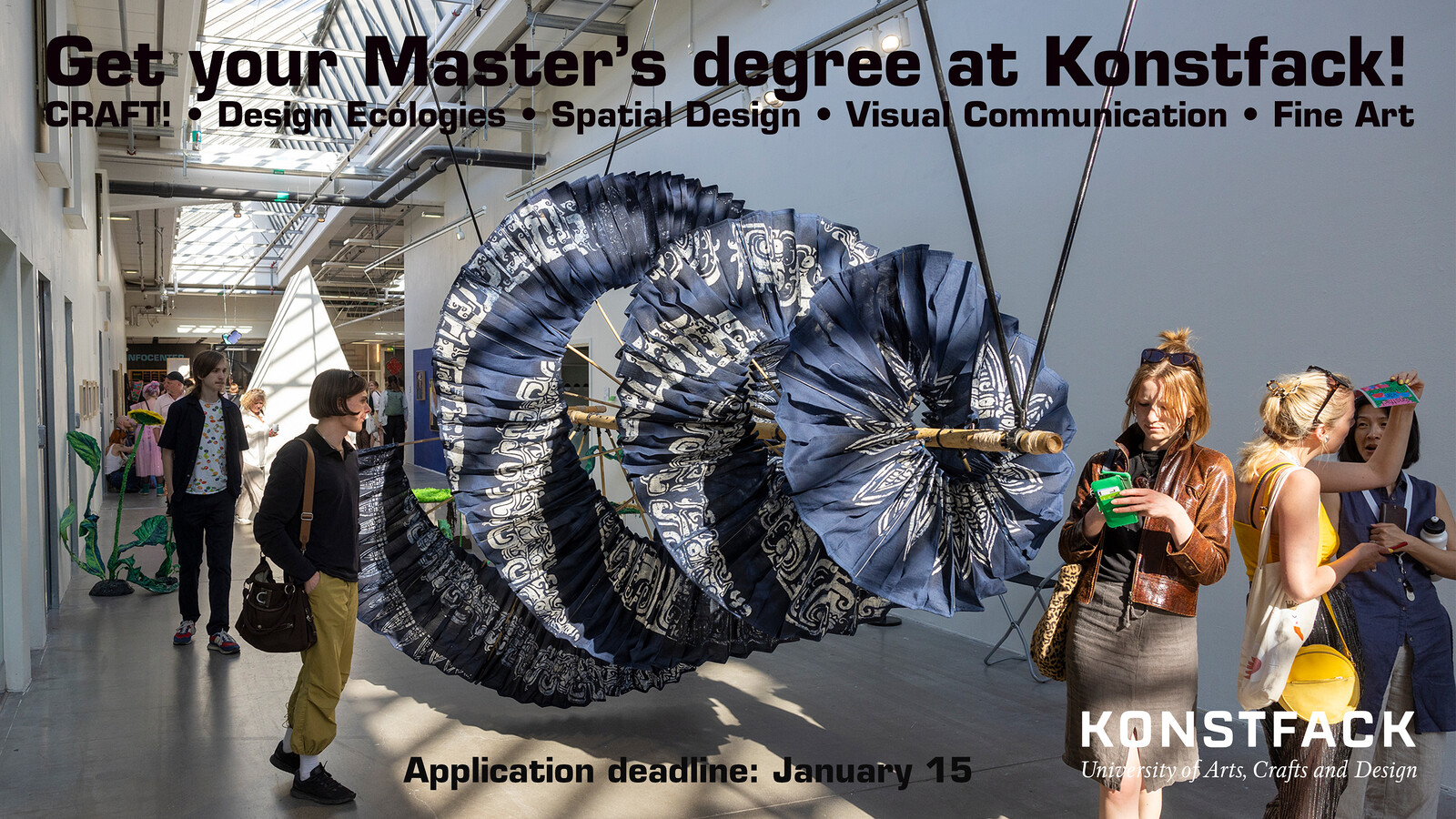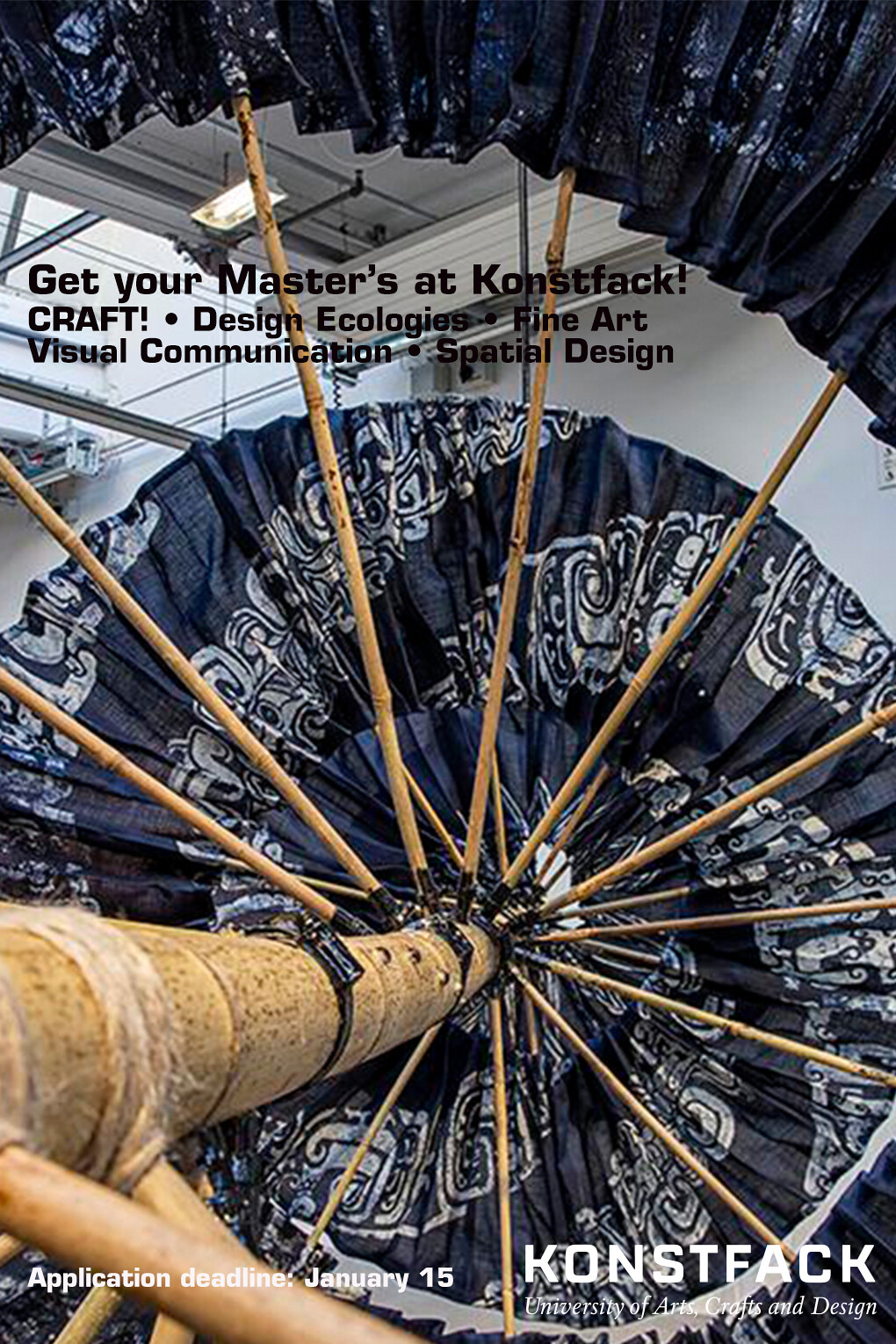Online applications open: 1 November 2014
Priority deadline: 1 December 2014
Research Open Day: Tuesday 4 November 2014, 14–18h
Royal College of Art
Kensington Gore
London, SW1 2EU
www.rca.ac.uk/research-innovation/research
Dedicated to postgraduate study in art and design, the Royal College of Art is based in London. The School of Fine art is in the College’s Battersea campus, in the heart of London’s newest creative hub.
The College is home to a highly concentrated, subject specialist community of over 170 postgraduate research students studying towards MPhil and PhD degrees.
As an RCA research student, you will of course have excellent research supervision. In addition you will have access to high-level resources that include specialist workshops with technical and digital provision and facilities, as well as subject specific and generic research and KE training and career development.
Staff and students have a range of funding opportunities open to them. The College encourages applications to the AHRC Doctoral Awards scheme (currently, each school has at least one Research Council-funded student). PhD students may be offered part-time teaching, demonstration or research work, for which payment may be made according to the College guidelines to help support them in their studies. UK and EU MPhil students are eligible for the RCA’s generous bursary scheme.
About the School of Fine Art
As a school, we offer a holistic approach to Fine Art teaching; our students engage with specialists in moving image, painting, performance, photography, printmaking and sculpture, as well as each other.
Our approach premised on an understanding that artists today are neither constrained by the medium they use nor by a sense of what content their work should address. Contemporary artists are valued for their contribution to culture because they test and reflect upon the way in which we try to engage with our rapidly changing world.
Artists exploit the possibilities of new technologies while also engaging with the value of traditional approaches; they enact new philosophical positions as well as reflecting upon how our thinking has led us to where we are. And they often adopt stances informed significantly by the past to antagonise our assumptions about society.
We also conceive of Fine Art as a subject that is accessible to collaboration with other fields and disciplines; it is a subject that celebrates the deployment of diverse methods of research and production that are invented, borrowed and even stolen.
At the Royal College we enjoy an environment that is supportive of the varied research enquiries that Fine Art can enable. We support customary methods and processes associated with Fine Art practice whilst enabling others that we cannot even anticipate.
We are committed to examining and researching both the means by which Fine Art enquiries emerge—the rich array of positions, techniques, methods and materials that artists use and have used to develop their research—as well as the subjects, ideas and issues that are successfully articulated by art, with a view to understanding its broader cultural, societal and economic impact.
Teaching within the School is organised around programmes that provide specific material and historical coordinates as points of reference from which students are encouraged to consider the development of their own work. Regardless of their programme of study, students interact across the broad area of Fine Art and are also encouraged to engage with other areas of the College. There is an especially strong affinity with Curating Contemporary Art and Critical Writing in Art and Design, programmes in the School of Humanities, and there are also strong synergies across the various college disciplines in materials, design, communication and architecture.
Research in the School of Fine Art often leads staff and students to less immediately cognate fields in the humanities as well as the sciences, and the School works with a range of significant partners such as the V&A and Imperial College to further its ambitions in this regard.
For more information, please visit our website and register to attend our open day. See the event listing for a full programme of the day. To register your interest, please email [email protected].
Key dates
1 November 2014: Online applications open
4 November 2014: Research student Open Day
1 December 2014: Priority deadline for MPhil/PhD applications
December 2014/January 2015: Interviews to take place
10 February 2015: Results letters received



